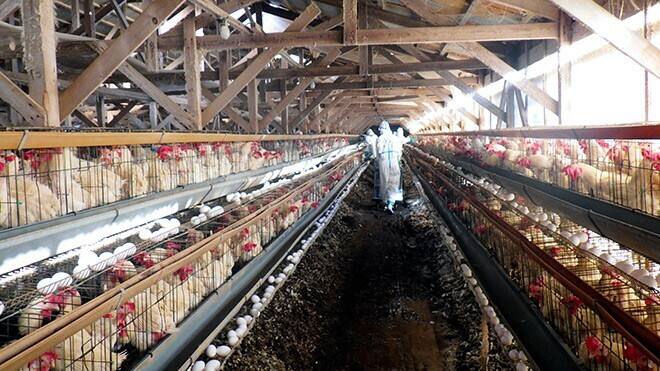
Japan begins culling after bird flu outbreak hits farm
What's the story
Japanese authorities have started culling around 50,000 chickens after a bird flu outbreak was reported at a farm in the northern Iwate region. This is the 19th such incident this season, Japan's Agriculture Ministry said. The outbreak was confirmed after the farm reported an increase in fowl deaths, and subsequent tests identified bird flu as the cause on Sunday.
Containment measures
Movement restrictions imposed on birds amid outbreak
In light of the outbreak, the Iwate regional government has placed a movement ban on 170,000 birds from two nearby farms within a three-kilometer radius. Around 3.8 million birds in a 10-kilometer area are also barred from leaving the zone. The measure comes after similar incidents earlier this month when farms in Iwate and Aichi were hit by the virus, prompting massive culling efforts.
International impact
Bird flu outbreaks prompt global response
Bird flu outbreaks haven't been limited to Japan, with reports also coming from the United States and England. In response, US President Joe Biden has announced a $306 million allocation to bolster the country's bird flu response efforts. The funding will be used to improve preparedness, monitoring programs, and research for developing countermeasures against the H5N1 virus.
Proactive steps
England implements protective measures against bird flu
Similarly, England also detected several bird flu cases, leading to the establishment of protective zones and preemptive culling measures. In India, the Gorewada Rescue Centre in Nagpur reported the deaths of three tigers and a sub-adult leopard due to the highly pathogenic avian flu H5N1 virus. This incident marks India's first significant wildlife loss to this virus in captivity. After these fatalities, a red alert has been issued across all zoos, rescue centers, and transit facilities in Maharashtra, TOI reported.